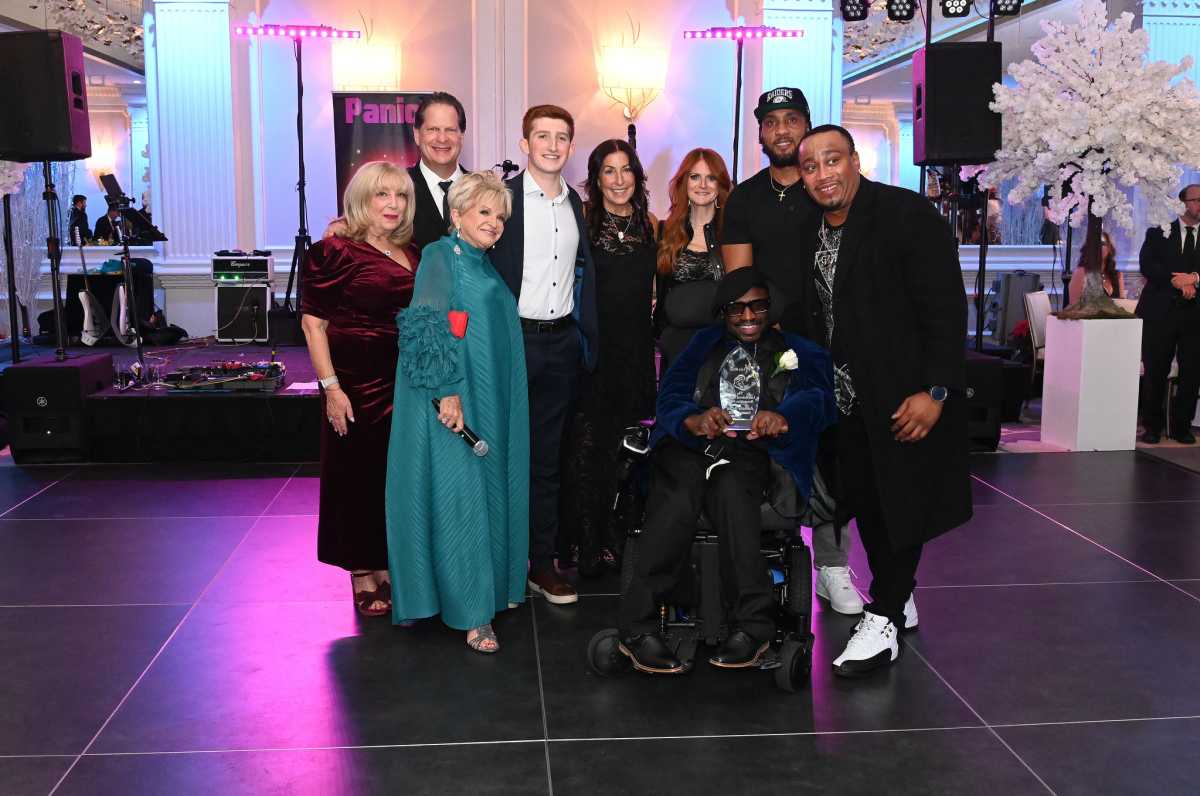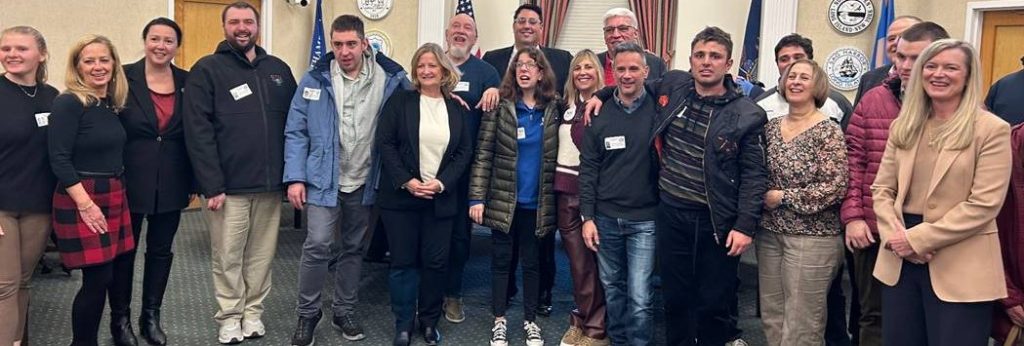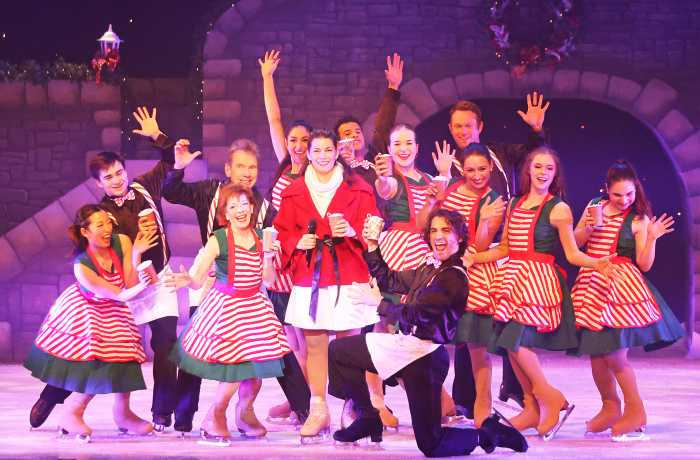Israeli Attack Survivor Tells Her Incredible Story in East Hampton
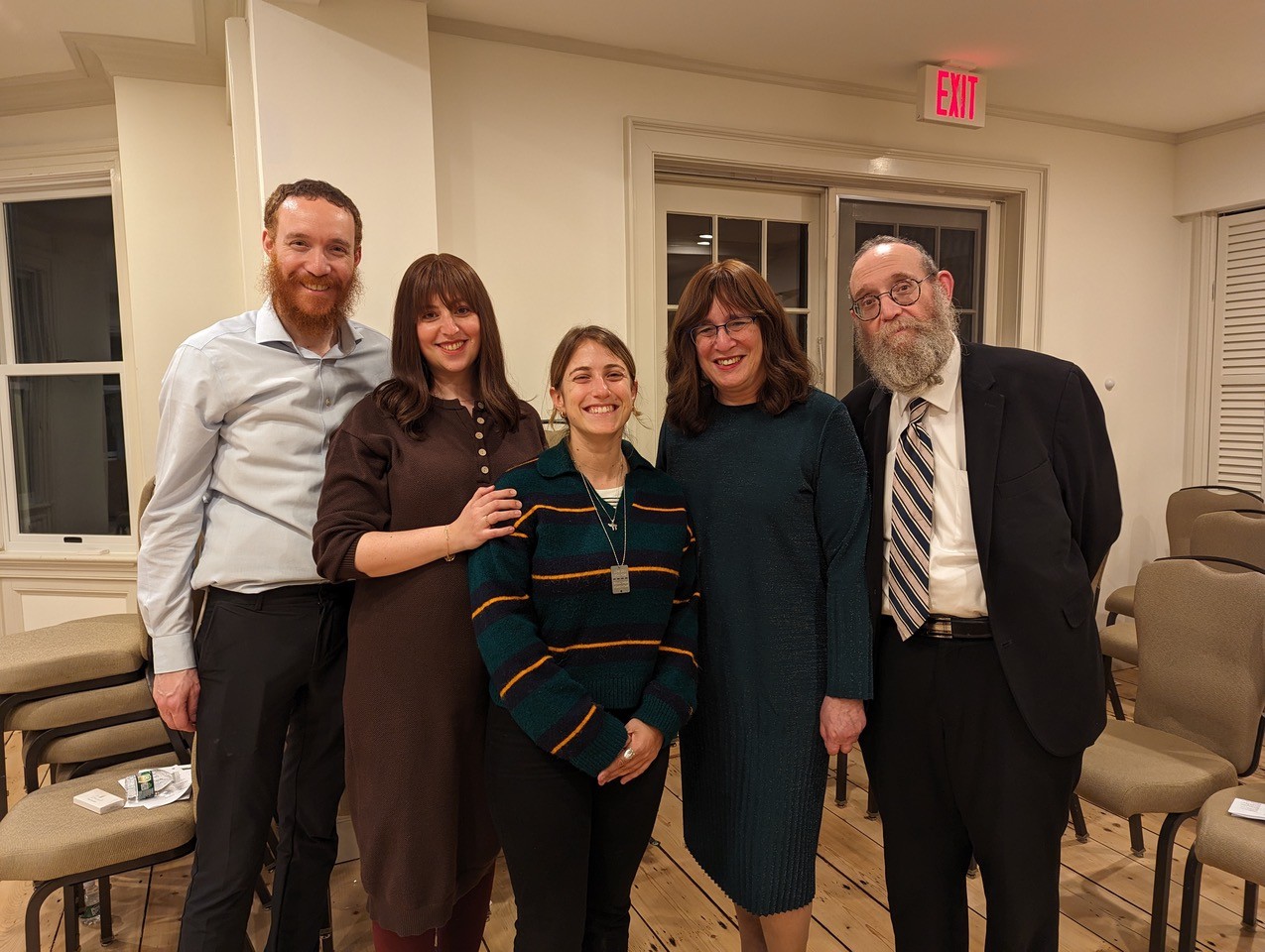
With the Israel-Hamas War still raging in Gaza and violent protests flaring up in American cities and some of its most elite universities, a brave young woman came to East Hampton to help put a human face on at least one side of the conflict.
On May 16, Eden Gafner, a 28-year-old Israeli, vividly recounted her experiences as she and her family were thrust into the teeth of the surprise attacks that the terrorist group Hamas committed on October 7.
“I know that I need to speak for the ones who didn’t survive,” she said. “When I’m standing here today, I’m their legacy.”
Gafner told her story to a rapt, standing-room-only audience of congregants and guests at the Chabad of the Hamptons on Woods Lane in East Hampton. Her appearance was arranged through Faces of October Seventh, an organization whose charter is to bring first-hand testimonies from attack survivors directly to college campuses and communities across North America.
Gafner, whose voice is inflected with the heavily accented cadence and syntax of a person who speaks English as a second language, grew up in Kibbutz Re’im, in an area known as the Gaza Envelope, only about 10 miles from the Israel-Gaza border. To one side of the kibbutz is an Israeli Army base; to the other is the field where the Nova Music Festival was staged — the festival where many Israeli casualties were incurred and which came to symbolize the attacks to the wider world.
At the time of the attacks, Kibbutz Re’im had about 435 residents. In a nod to the proximity of her community to the Gaza border, Gafner entitled her presentation “Life Next to the Fence.” Before she described the events of October 7 in graphic detail, Gafner zoomed out a bit and gave the audience a sense of what it was like to grow up on a kibbutz so close to the border.
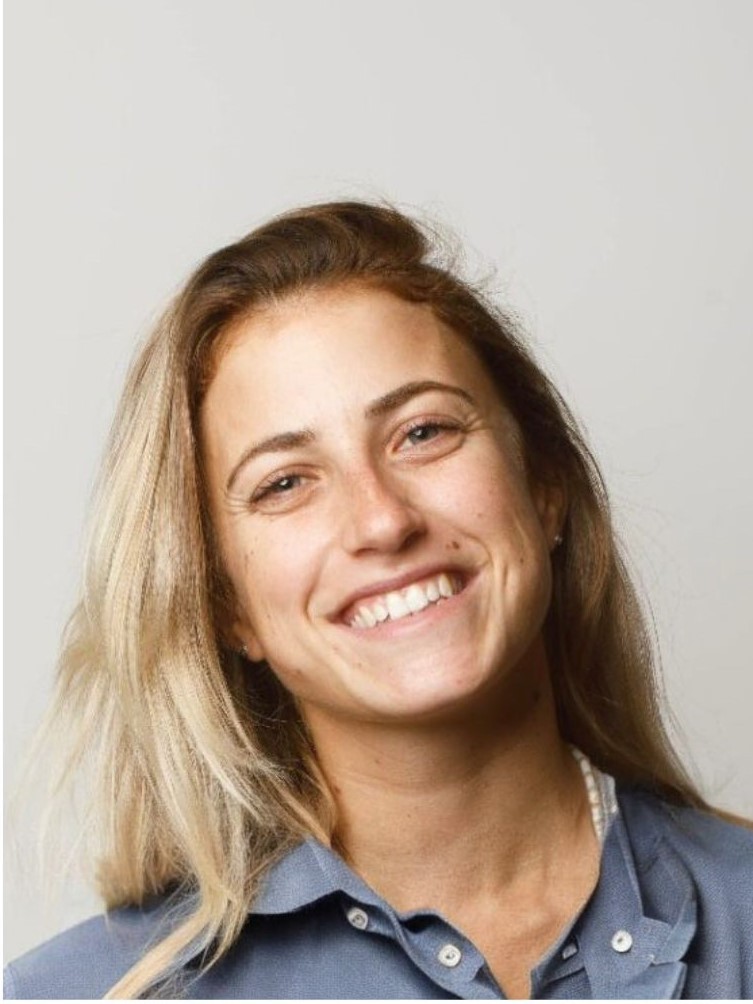
She noted that before the attack, her friends and neighbors thought of life in the Gaza Envelope as “90 percent heaven and 10 percent Hell.” She told of an often-idyllic childhood with friends who were like family; of baking and selling pita bread at the site of the Nova Music Festival; of her parents crossing the border to go to the market and beaches in Gaza on Saturday mornings.
“When I smell the grass of the kibbutz and when I enter the gate, I know I’m home,” she said. “I grew up in the most free way I could imagine. But a few times a year, Hamas reminded us that we couldn’t live in peace in my area.”
Almost matter of factly, she described a childhood where part of the normal rhythms of life included hearing sirens that indicated a missile strike or some other attack was imminent. Many event attendees nodded solemnly when Gafner explained, “we took the same yellow bus your children and grandchildren take to school. If Hamas decided to shoot missiles into my kibbutz, I couldn’t go to school that day.”
For Gafner, who was used to living in the shadow of potentially deadly violence, October 7 started as a relatively routine morning. When the first warning sirens began to wail at about 6:30 a.m., she didn’t panic.
“I say it like it’s OK, but it’s not OK,” she explained. “For me, it was a regular morning. It’s my reality. I’m used to waking up to these sirens that tell me, “Eden, you need to run for your life because Hamas is shooting missiles.” This is my routine. And it’s the routine for so many young children in the Gaza Envelope.”
The violence at Kibbutz Re’im unfolded relatively slowly. Multiple sirens went off before Gafner, her family and her neighbors began to comprehend the intensity of the threat they were facing. They watched video reports and social media posts and texted each other. The first reports Gafner remembers seeing were of a single truck full of attackers in the city of Sderot, about 15 minutes from the kibbutz.
“It’s one pickup truck, nothing will happen,” she remembered thinking. “But the second video showed seven pickup trucks coming from Gaza. As a woman who grew up in the Gaza Envelope, that’s my worst nightmare come alive.”
By about 8:30 a.m. that morning, Gafner’s family and her boyfriend, who was visiting at the time, understood that Hamas had invaded their kibbutz. Texts from their neighbors began to describe unspeakable violence, including a message from a woman who texted that her husband had been killed in front of their two young children.
“We heard a knock on the back door and we knew that we were next,” she said.
Gafner and her family had alternated between seeking shelter first in a safe room, then in the attic of their home. Ultimately, they decided that the safe room, though fortified to withstand a missile strike, didn’t lock properly from the inside and wasn’t the ideal choice to repel in-person attackers. Her family came down from the attic and gathered in a room below in an attempt to protect themselves.
Eden Gafner and her family’s survival ultimately hung on their ability to keep an attacker from physically breaching a door in their home. They had no guns — no real weapons of any kind — to defend themselves.
“After the first knock, we heard a second knock on the front door,” she recounted. “My father and my boyfriend were running to hold the door to keep the attackers out. It was crazy. The only way to prevent the terrorist from getting in was to just hold the door.
“After the second knock we heard a shot near the front door and glass shattering into a million pieces,” she continued. “I could actually hear a Hamas terrorist stepping into my home. Imagine that for yourself.”
“All of a sudden we saw the doorknob going down and up and we started to understand that the terrorist was trying to open it from the other side,” Gafner added. “We started to fight for the door with the terrorist. He tried to open it and [my family] tried to prevent it. I don’t remember if we screamed.”
After five minutes or so, the door handle stopped moving. Gefner will never know why the attackers chose to leave when they did — or why her life and her family’s lives were spared that day.
“I couldn’t understand how me and my family survived,” she said, “Why did the terrorist give up on this door?”
Gafner learned later that as many as 70 attackers invaded Kibbutz Re’im on October 7. She ended her presentation with a moving tribute to five kibbutz residents who died in the attacks: friends and neighbors, some of whom she had known her whole life. According to reports in the Israeli press, at least five other kibbutz residents were taken hostage, their fates unclear.
“I’m 28 years old. I’m going to live. I’m strong,” she said. “But on Saturday morning on October 7, many young children experienced the same thing as me. This circle of terror must be broken. I don’t wish for the children living now in the Gaza Envelope to live like me — with all these fears, with all these things that trigger them.”
Eden Gafner endured the kind of trauma and tragedy that no one should have to endure. As her presentation concluded and she urged attendees to “do good in the world,” it was hard not to think of the adage usually attributed to Friedrich Nietzsche: “What doesn’t kill you makes you stronger.”
